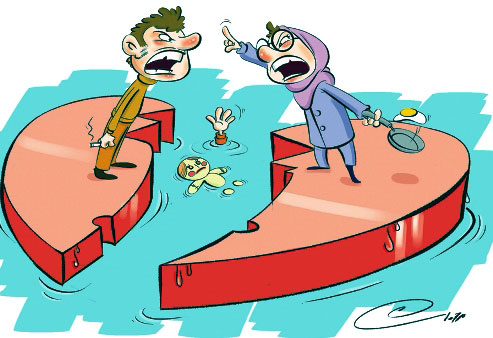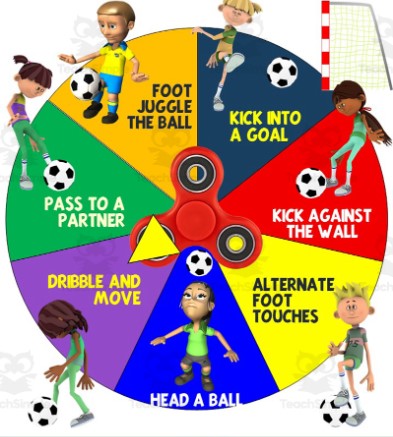آنتونی، مایکل ایرونسون گیل و اشنایدرمن نیل. 2007، کتاب کار مدیریت استرس به شیوه شناختی – رفتاری، ترجمه سید جواد آل محمد، سولماز جوکار، دکتر حمید طاهر نشاط دوست، 1387، اصفهان: انتشارات جهاد دانشگاهی.
ا.پاین، رزماری. 2005، فنون آرمش (تدبیر هایی برای ارتقای سلامت )، ترجمه دکتر مسعود شریفی و ضیاء قریشی، 1389، تهران: انتشارات فراروان.
ادﻳﺐ، ﻧﺴﺘﺮن (1374)، ﺑﺮرﺳﻲ ﻧﻘﺶ ﻣﺸﺎورة ﮔﺮوﻫﻲ در ﺑﺎﻻ ﺑﺮدن ﻋﺰت -ﻧﻔﺲ ﻧﻮﺟﻮاﻧﺎن، ﭘﺎﻳﺎنﻧﺎﻣﺔ ﻛﺎرﺷﻨﺎﺳﻲارﺷﺪ، داﻧﺸﮕﺎه ﻋﻼﻣﺔ ﻃﺒﺎﻃﺒﺎﻳﻲ
اسپالدینگ، چریل. ال. (1381). انگیزش در کلاس درس (ترجمه محمد نائنیان واسماعیل بیابانگرد). تهران: رشد.
اسدی، جوانشیر. رضایی، رقیه. ترابی، سید اسماعیل.(1388). بررسی و مقایسهی جراتورزی اضطراب، افسردگی و فشار روانی در افراد بینا و نابینا. ماهنامه تعلیم و تربیت استثنائی. شماره 94و 93. شهریور و مهر.
اسلامی نسب، علی. (1373). روانشناسی اعتماد به نفس. تهران: انتشارات مهرداد.
افروز، غلامعلی. (1375). روانشناسی تربیتی. تهران: انتشارات انجمن اولیا ومربیان کشور.
افضلنیا، م. ر. (1383). بهداشت روانی خانواده. تهران: تزکیه
اکبری اورزمان، حمیدرضا.(1371). بررسی رابطه حمایت اجتماعی موسسات رفاهی(کمیته امداد) با عزت نفس فرزندان خانوادههای تحت پوشش. پایان نامه کارشناسی ارشد، دانشگاه علامه طباطبائی.
اکستین، دنیل. کرن، روی. (1389). ارزیابی ودرمان سبک زندگی( ترجمه حمید علیزاده همکاران). تهران: نشر رسش.
آﻟﺒﺮﺗــﻲ، راﺑــﺮت و اﻣــﺎﻧﺰ، ﻣﺎﻳﻜــﻞ (1374)، روانﺷﻨﺎﺳــﻲ اﺑــﺮاز وﺟــﻮد، اﻧﺘﺸﺎرات ﻋﻠﻤﻲ، ﺗﻬﺮان؛
الواني ، مهدي . (1385 ) مديريت عمومي .تهران : ني ، چ 31 .
بارون، رابرت. بیرن، دان. برنسکامب، نایلا. (1388). روانشناسی اجتماعی ( ترجمه یوسف کریمی). (ویراست یازدهم). تهران: نشر روان.
بال، ساموئل. (1374). انگیزش در آموزش وپرورش( ترجمه سیدعلی اصغر مسدد). شیراز: انتشارات دانشگاه شیراز.
بتنهام، سوزان. (1384). روانشناسی تربیتی (ترجمه اسماعیل بیابانگرد و علی نعمتی). تهران: نشر نی.
بحری، نادره.(1388). ﺗﺄﺛﻴﺮ آﻣﻮزش ﺟﺮأتورزي ﺑﻪ روش ﻣﺸﺎورة ﮔﺮوﻫﻲ ﺑﺮ ﻋﺰت ﻧﻔﺲ داﻧﺶآﻣﻮزان دﺧﺘﺮ منطقه 11 شهر تهران. پیک نور. سال هشتم. شماره 1.
براندن، ناتانیل. (1371). روان شناسی وحرمت نفس.(ترجمه جمال هاشمی). تهران: شرکت سهامی انتشار تهران.
برنو، فرانک. (1370). فرهنگ توصیفی روانشناسی (ترجمه فرزانه طاهری و مهشید یاسایی). تهران: نشر طرح نو.
بساک نژاد، سودابه. ( 1388). رابطه حرمت خود، کمال گرایی و خود شیفتگی با خودناتوان سازی در گروهی از دانشجویان. مجله روانشناسی. شماره .49.بهار.
بشارت, محمدعلي. (1386). ساخت و اعتباريابي مقياس کمالگرا يي چند بعدي تهران. پژوهش های روانشناختی، 10: 67-49.
بشارت، م. ع. (1381). بررسی رابطهی کمالگرایی و حرمتخود در دانشآموزان پیشدانشگاهی. فصلنامهی روان
شناسان ایرانی، 1، 28-22.
بلاغی اینالو.(1389) بررسي رابطه بين ويژگي هاي شخصيتي با ابعاد كمال گرايي و شيوههاي مقابله با استرس در دانشجويان كارشناسي و كارشناسي ارشد دانشگاه آزاد مرودشت
ﺑﻬﺮاﻣﻲ، ﻓﺎﻃﻤﻪ (1375)، ﻣﻘﺎﻳﺴﺔروشﻫﺎي ﺟﺮأت آﻣﻮزي ﺑﻪ داﻧـﺶ آﻣـﻮزان ﻛﻢﺟﺮأت دﺧﺘﺮ دﺑﻴﺮﺳﺘﺎﻧﻲ ﺑﺎ ﺷﻴﻮه ﻫﺎي ﻣﺸﺎورة ﮔﺮوﻫﻲ و ﻣﺸﺎورة ﻓﺮدي در ﺷﻬﺮ اﺻﻔﻬﺎن، ﭘﺎﻳﺎنﻧﺎﻣﺔ ﻛﺎرﺷﻨﺎﺳﻲارﺷﺪ، داﻧﺸﮕﺎه ﻋﻼﻣﻪ ﻃﺒﺎﻃﺒﺎﻳﻲ؛
بهروزی، علیرضا، (1384) بررسي رابطه بین منبع کنترل و سلامت رواني در دانشجویان مراجعه کننده به مرکز مشاوره دانشگاه تبریز، ،پایان نامه کارشناسی ارشد چاپ نشده، دانشگاه تربیت معلم تهران، دانشکده علوم تربیتي.
بیابانگرد، اسماعیل. (1370). بررسی رابطه بین مفاهیم منبع کنترل، عزت نفس وپیشرفت تحصیلی پسران سال سوم دبیرستانهای تهران در سال 70-69. پایان نامه کارشناسی ارشد، دانشگاه علامه طباطبائی.
بیابانگرد، اسماعیل. (1376). روشهای افزایشعزتنفس درکودکانونوجوانان. تهران: انتشارات انجمن اولیا ومربیان.
بیابانگرد؛ اسماعیل. (1384). رابطه میان عزت نفس، انگیزه پیشرفت وپیشرفت تحصیلی در دانش آموزان سال سوم دبیرستان های تهران. مجله مطالعات روان شناختی دانشکده علوم تربیتی وروان شناسی دانشگاه الزهرا، 1، 4و5، 144-131.
بیان زاده، سید اکبر، زمانی منفرد، افشین، حیدری پهلویان، احمد،(1375) بررسی وضعیت سلامت روانی و منبع کنترل کارکنان یک مجتمع صنعتی، فصلنامه اندیشه و رفتار، 20 – 29 ،4.
بهرامی، فرهاد .(1374)، مقایسه روشهای آموزش رفتار خودابرازی به دانش آموزان کم جرأت دختر دبیرستانی با شیوه های مشاوره گروهی و مشاوره فردی در شهر اصفهان سال 75-74، پایان نامه کارشناسی ارشد دانشگاه علامه طباطبایی، تهران.
پشتمشهدي، مرجان.، یزداندوست، رخساره.، اصغر نژاد فرید، علی اصغر.، و مریدپور، دارا (1382). اثربخشی درمان شناختی-رفتاري بر کمالگرایی، تأییدطلبی و علایم افسردگی در بیماران مبتلا به اختلال درد.مجلهاندیشه و رفتار، 9 .22-32 :(3)
پنتیریچ، پال. آر.، شانک، دیل. اچ. (1386). انگیزش در تعلیم وتربیت، نظریهها، تحقیقات وراهکارها(ترجمه مهرناز شهرآرای). تهران: انتشارات علم.
پوپ، آلیس.، مک هیل، سوزان.، کریهد،ادوارد. (1385). افزایش احترام به خود در کودکان و نوجوانان(ترجمه پریسا تجلی). تهران: انتشارات رشد.
پور افکاری، نصرت اله. (1378). فرهنگ جامع روانشناسی. تهران: نشر جهاد دانشگاهی.
پورشافعی، هادی. (1370). بررسی رابطه عزت نفس با پیشرفت. پایان نامه کارشناسی ارشد، دانشگاه تربیت معلم.
ﺛﻨﺎﻳﻲ، ﺑﺎﻗﺮ (1379)، رواندرﻣﺎﻧﻲ و ﻣﺸﺎورة ﮔﺮوﻫـﻲ ، 50 ، ﻧﺸﺮ ﭼﻬﺮ، ﺗﻬﺮان؛
حسینی نسب، سید داود.، اقدم، علی اصغر. (1375). فرهنگ واژهها، تعاریف واصطلاحات تعلیم وتربیت. تبریز: انتشارات احرار.
حیدری، الهام. مرزوقی، رحمت الله.(1391). بررسی و مقایسه سبک های عمومی تصمیمگیری در مدیران دانشگاه مطالعه موردی: دانشگاه شیراز. دانشگاه آزاد مرودشت. فصلنامه علمی پژوهشی.سال سوم.شماره دوازدهم.
جبل عاملي، شيدا، طاهر نشاط دوست، حميد، مولوي، حسين. )۱۳۸۹ . (اثر بخشي مداخله مديريت استرس به شيوه شناختي- رفتاري برکيفيت زندگي و فشارخون بيماران زن مبتلا به فشارخون، مجله علمي دانشگاه علوم پزشكي كردستان، دوره پانزدهم، ۸۸-۹۷.
جلالی ، سعید .(1380 ) .بررسی کارایی روشهای ابراز وجود در افزایش جرات ورزی دختران نابینای اصفهان. مجله دانش و پژوهش شماره 5 صفحه 12-1
ﺟﻼﻟﻲ، ﻣﺤﻤﺪرﺿﺎ (1376)، ﺑﺮرﺳﻲ اﺛﺮ روش ﻫـﺎي درﻣـﺎﻧﻲ و آﻣﻮزﺷـﻲ ﺳﺮﻣﺸﻖﭘﺬﻳﺮي و ﺗﻤﺮﻳﻦ ﺳﺮﻣﺸﻖ ﭘﺬﻳﺮي و آرﻣﻴﺪﮔﻲ ﻋﻀﻼﻧﻲ در درﻣـ ﺎن رﻓﺘﺎرﻫﺎي ﻏﻴﺮﺟﺮأت ورزاﻧﻪ، رﺳـﺎﻟﺔ دﻛﺘـ ﺮي، داﻧـﺸﮕﺎه ﺗﺮﺑﻴـﺖ ﻣـﺪرس ، ﺗﻬﺮان؛
خديوی زند، محمد مهدی(1374). پرخاشگری و ناکامی، تهران : انتشارات تربیت.خلعتبری،
خلیلی شرفه، فاطمه. (1386). مقایسه تاثیر شبیه سازی های ذهنی ساده وتوام فرایندی وفرآورده ای بر عملکرد تحصیلی دانش آموزان پراستعداد و طبیعی. پایان نامه کارشناسی ارشد، دانشگاه شهید بهشتی.
درويش، زهرا(1386). بررسی میزان رضايت مندی زناشويی و تأثیر آن بر پرخاشگری دانش آموزان مدارس راهنمايی دولتی دخترانه، پسرانه ناحیه 2 رشت.
دلالی، نیره؛ (1388). انتقاد: انتقاد و نحوه ی مواجهه با آن. تهران: انتشارات نشر قطره، چاپ اول.
دلاور، علی. (1389). مبانی نظری وعملی پژوهش در علوم انسانی واجتماعی. تهران: رشد.
دﻻور، ﻋﻠﻲ (1380)، ﻣﺒﺎﻧﻲ ﻧﻈﺮي وﻋﻤﻠـﻲ ﭘـﮋوﻫﺶ در ﻋﻠـﻮم اﻧـﺴﺎﻧﻲ و اﺟﺘﻤﺎﻋﻲ، اﻧﺘﺸﺎرات رﺷﺪ، ﺗﻬﺮان
رابينز، استيفن.(1385). رفتار سازماني، مفاهيم، نظريهها و كاربرد ها. ترجمه علي پارسائيان، محمد اعرابي، تهران، دفتر پژوهشهاي فرهنگي، چاپ هشتم.
رادفر، شهرام و حسینی، علی. (1387). بررسی سلامت روانی فرزندان 15-18 ساله جانبازان. مجله طب نظامی، 25-40 ،3.
رضازاده، سمانه.(1389). بررسي رابطهی سبكهای عمومی تصميمگيری و هوش معنوی مديران دانشگاههای فردوسی و علوم پزشكي مشهد. پایان نامه کارشناسی ارشد. دانشگاه فردوسی مشهد.
رضایی، اکبر، سیف، علی اکبر. (1384). نقش باورهای انگیزشی، راهبردهای یادگیری وجنسیت در عملکرد تحصیلی. مجله تعلیم وتربیت، 4، 85-43.
روحانی،عباس. ابوطالبی، حمیرا (1389). تاثیر آموزش جرأت ورزی به روش گروهی در ارتقاء توان مقابله با استرس کارگری. تازه های روانشناسی صنعتی سازمانی سال اول پاییز. شماره 4.
ساعتچی، محمود. (1374). روانشناسی کاربردی برای مدیران. تهران: نشر ویرایش.
سانتراک، جان. دبلیو. (1387). روانشناسی تربیتی (مترجمان شاهده سعیدی و مهشید عراقچی و حسین دانش فر). تهران: نشر رسا.
سرمد، زهره. بازرگان، عباس. حجازی، الهه. (1383). روشهاي تحقيق در علوم رفتاري. (چاپ دهم). تهران: نشر آگاه.
سرو، مهسا. (1387). مقایسهی نقش میانجی اضطراب امتحان در رابطهی بین کمالگرایی و موفقیت تحصیلی در دانشآموزان تیز هوش و عادی. پایاننامهی کارشناسی ارشد روانشناسی تربیتی دانشگاه شهید بهشتی.
سمائی، س. (1389). اعتباریابی، رواسازی و نرمیابی سیاههی کمالگرایی هیل. پایاننامهی کارشناسی ارشد روانشناسی عمومی دانشگاه شهید بهشتی.
سیاسی، علی اکبر. (1388). نظریههای شخصیت. دانشگاه تهران.
سیاوشی،حاتم. (1385). بررسی تاثیر ساده وتوام شبیه سازیهای ذهنی فرآیندی وفرآورده ای بر بهبود عملکرد تحصیلی دانشجویان. پایان نامه کارشناسی ارشد روانشناسی تربیتی، دانشگاه شهید بهشتی تهران.
سیرجانی، لیلا. (1386). بررسی تاثیر هوش، خودکار آمدی و کمال گرایی بر سازگاری اجتماعی دانش آموزان. پایان نامه کارشناسی ارشد. دانشگاه شهید بهشتی.
سيف، علي اکبر (1380). اندازهگيري، سنجش و ارزشيابي آموزشي.( ويرايش سوم)، تهران، نشر دوران.
ﺳﻴﻒ، ﻋﻠﻲ اﻛﺒﺮ (1380)، ﺗﻐﻴﻴﺮ رﻓﺘﺎر و رﻓﺘﺎر درﻣﺎﻧﻲ : ﻧﻈﺮﻳﻪﻫﺎ و روش ﻫﺎ، ﻧﺸﺮ داﻧﺎ، ﺗﻬﺮان؛
سیف، علی اکبر. (1388). روانشناسی پرورشی نوین. (ویرایش ششم). تهران: نشر دوران.
شريفي، حسن پاشا (1381). اصول روانسنجي و روانآزمايي. (چاپ هشتم). تهران: انتشارات رشد.
شعاری نژاد، علی اکبر. (1364). فرهنگ علوم رفتاری. تهران: انتشارات امیر کبیر.
شعاری نژاد، علی اکبر. (1378). یادداشت هایی در باره نظریههای انگیزش در آموزش وپرورش. تهران: رشد.
شفیع آبادی، عبدالله.، ناصری، غلامرضا. (1377). نظریههای مشاوره وروان درمانی. تهران: مرکز نشر دانشگاهی.
ﺷﻔﻴﻊآﺑﺎدي، ﻋﺒـﺪاﷲ (1380)، ﻣﻘـﺪﻣﺎت راﻫﻨﻤـﺎﻳﻲ و ﻣـﺸﺎوره : ﻣﻔـﺎﻫﻴﻢ و ﻛﺎرﺑﺮدﻫﺎ، اﻧﺘﺸﺎرات داﻧﺸﮕﺎه ﭘﻴﺎمﻧﻮر، ﺗﻬﺮان؛
شکرکن، حسین ودیگران. (1387). مکتب های روانشناسی ونقد آن جلد1. پژوهشگاه حوزه ودانشگاه. تهران: سمت.
شکرکن، حسین.، هاشمی شیخ شبانی، سیداسماعیل.، نجاریان، بهمن. (1384). بررسی رابطه برخی پیشایندهای مهم ومربوط به خود ناتوان سازی تحصیلی ورابطه آن با پیامدهای برگزیده در دانش آموزان پسر سال اول دبیرستان های اهواز. مجله علوم تربیتی وروانشناسی دانشگاه شهید چمران اهواز، 3، 12، 3، 100-77.
شکیبایی، فرشته، تهرانی دوست، مهدی، شهریور، زهرا، آثاری، شروین. (1383). گروه درمانی مدیریت خشم با رویکرد شناختی - رفتاری در نوجوانان مؤسسه ای، مجله تازههای علوم شناختی، بهار و تابستان، شماره 21 و 22.
شولتز، دوان.، شولتز، سیدنی. آلن. (1391). نظریههای شخصیت. (ترجمه یحیی سید محمدی). ( ویرایش دوم). تهران: نشر ویرایش.
ﺷﻴﻠﻴﻨﮓ، ﻟﻮﺋ ﻴﺲ (1374)، ﻧﻈﺮﻳـﻪ ﻫـﺎي ﻣـﺸﺎوره ، ﺗﺮﺟﻤـﺔ ﺧﺪﻳﺠـﻪ آرﻳـﻦ، اﻧﺘﺸﺎرات اﻃﻼﻋﺎت
صادقی موحد, فریبا نریمانی, محمد رجبی, سوران (1387) بررسی تأثیر آموزش مهارت های مقابله ای بر
وضعیت سلامت روانی دانشجویان. مجله علمي پژوهشي دانشگاه علوم پزشكي اردبيل ــ 8 (
صالحی، زهرا. (1389). بررسی اثر بخشی ارزشیابی توصیفی بر پیشرفت تحصیلی وعزت نفس دانش آموزان دختر پایه پنجم ابتدایی منطقه9شهر تهران. پایان نامه کارشناسی ارشد آموزش ابتدایی، دانشگاه علامه طباطبائی.
عابدی ، علی. (1378) .تأثیر آموزش ابراز وجود بر رفتار خود ابرازی دانش آموزان مقطع دبیرستان شهرستان نایین. اصفهان : انتشارات دانشگاه آزاد
عابدی، مریم.(1378)، آموزش تکنیک های رفتار درمانی در مشاوره(جلد اول)، واحد آموزش و پژوهش کلینیک مشاوره و درمان آموزش و پرورش استان اصفهان.
ﻋﺒﺎسﻧﻴﺎ، ﻣﺤﻤﺪ (1378)، ﺗﺄﺛﻴﺮ آﻣﻮزش ﺟﺮأت ورزي و ﻋﺰت ﻧﻔﺲ ﭘـﺴﺮان ﻛﻢﺟﺮأت (ﺑﻪ ﺷﻴﻮة ﺷﻨﺎﺧﺘﻲ)، ﭘﺎﻳﺎن ﻧﺎﻣﺔ ﻛﺎرﺷﻨﺎﺳﻲ ارﺷﺪ، داﻧﺸﮕﺎه ﻋﻼﻣ ﺔ ﻃﺒﺎﻃﺒﺎﻳﻲ؛
فتي، لادن (1385). مهارت مديريت استرس. تهران: نشر دانژه
فرخی، احمد.، محمدزاده، حسن. (1383). تاثیر شکست درماندگی بر یادگیری وعملکرد مهارت حرکتی در دانشجویان تربیت بدنی دانشگاه اورمیه. المپیک، 4، 41-32.
فروع الدین ، عادل. (1382 ). اثربخشی برنامهی آموزش مهارتهای زندگی به منظور پيشگيری از مصرف مواد مخدر در دانشآموزان دورهی راهنمايی نائین .اصفهان : انتشارات دانشگاه آزاد
فقیرپور، مجید.(1377)، «نظریه ابرازوجود و کاربرد آن»، ماهنامه پرورشی وزارت آموزش و پرورش سال سیزدهم، شماره هشتم، صص 14-10.
ﻓﻨﺴﺘﺮﻫﺎﻳﻢ، ﻫﺮﺑﺮت، وﺑﺮ، ﺟﻴﻦ (1382)، روانﺷﻨﺎﺳـﻲ آﻣـﻮزش ﻗﺎﻃﻌﻴـﺖ ، ﻋﺒﺎس ﭼﻴﻨﻲ، اﻟﺒﺮز، ﺗﻬﺮان؛
قلی، اسداله. (1375). بررسی رابطه بین همنوایی وعزت نفس. پایان نامه کارشناسی ارشد، دانشگاه علامه طباطبائی.
قنبری هاشم آبادی، بهرامعلی. (1387). بررسی رابطه میزان عزت نفس وترتیب تولد در دانشجویان دختر دانشگاه فردوسی مشهد. فصلنامه تازهها و پژوهش های مشاوره، 7، 26، 127-117.
کدیور، پروین. (1382). روانشناسی تربیتی. تهران: انتشارات سمت.
کرمی نوری، رضا؛(1388). مطالعه عوامل مؤثر بر احساس شادی و بهزیستی در دانشجویان دانشگاه تهران. مجله
روانشناسی و علوم تربیتی، سال سی و نهم، شماره 3.
کریمی، یوسف. (1387). روانشناسی تربیتی. تهران: ارسباران.
کرین، ویلیام. (1384). نظریههای رشد،مفاهیم وکاربردها (ترجمه غلامرضا خویی نژاد و علیرضارجایی). تهران: رشد.
ﻛﻴﺎﻣﺮﺛﻲ، آذر (1392). ﺑﺮرﺳﻲ اﺛﺮﺑﺨﺸﻲ آﻣﻮزش رفتار جراتمندانه ﺑﺮ ﻛﻔﺎﻳﺖ اﺟﺘﻤﺎﻋﻲ داﻧﺶ آﻣﻮزان ﻣﺒﺘﻼ ﺑﻪ اﺧﺘﻼل رﻳﺎﺿﻲ. ﻓﺼﻞ ﻧﺎﻣﻪي ﻧﺎﺗﻮاﻧﻲﻫﺎي ﻳﺎدﮔﻴﺮي. 108 ،(1)1- .94
گنجی ،لیلا . (1383). بررسی رابطه میزان و ابعاد کمالگرایی با عملکرد تحصیلی ، افسردگی و اضطراب دانش آموزان دبیرستان های شهر تهران در سال تحصیلی 84-1383.
ليو بوچانان ، اندرو اوكانل. (1385). تاريخچه تصميمگيري. ترجمه دكتر عبدالرضا رضايي نژاد، نشريه گزيده مديريت، سال هفتم، شماره57
مسیح آبادی، علی. ناصری، حسین. (1387)،روشهای تقویت عزت نفس درنوجوانان، ،مشهد،آستان قدس رضوی.
سلامت روان،76 فصلنامه تازه هاي رواندرماني، سال شانزدهم، شماره 55 و. 56
مفتاح، سیمین. (1381). رابطه کمرویی وعزت نفس با پیشرفت تحصیلی دانشآموزان دوم راهنمایی شهر تهران. پایان نامه کارشناسی ارشد، دانشگاه تربیت معلم.
مظاهری، حمید.(1379). عناصر بنیادی پرورش تفکر ، اندیشه های نوین تربیتی ، دوره 3 ،زمستان
موسوی، معصومه.، حق شناس، حسن.، علی شاهی، محمدجواد.، نجمی، بدرالدین. (1387). اضطراب امتحان وبرخی عوامل فردی-اجتماعی مرتبط با آن در دانش آموزان دبیرستانی شهر شیراز. مجله تحقیقات علوم رفتاری، 6، 1، 25-17.
ﻣﻬﺪوي ﺣﺎﺟﻲ، ﻃﺎﻫﺮه (1389). ﺑﺮرﺳﻲ اﺛﺮ ﺑﺨﺸﻲ آﻣﻮزش رفتار جراتمندانه ﺑﺮ ﺷﺎدﻛﺎﻣﻲ، ﻛﻴﻔﻴﺖ زﻧﺪﮔﻲ و ﺗﻨﻈﻴﻢ ﻫﻴﺠﺎﻧﻲ داﻧﺸﺠﻮﻳﺎن داﻧﺸﮕﺎه ﺗﺮﺑﻴﺖ ﻣﻌﻠﻢ. ﭘﺎﻳﺎن ﻧﺎﻣﻪي ﻛﺎرﺷﻨﺎﺳﻲ ارﺷﺪ داﻧﺸﮕﺎه ﺗﺮﺑﻴﺖ ﻣﻌﻠﻢ.
ﻣﺤﻤﻮدی ﻋﺎﻟﻤﯽ، ﻗﻬﺮﻣﺎن. ﻋﻈﯿﻤﯽ، ﺣﻤﯿﺪه. ضرغامی، مهران. (1383). ﺗﺄﺛﯿﺮ آﻣﻮزش ﻗﺎﻃﻌﯿﺖ ﺑﺮ ﻣﯿﺰان اﺿﻄﺮاب و ﺟﺮأتورزی داﻧﺸﺠﻮﯾﺎن ﭘﺮﺳﺘﺎری. ﻣﺠﻠﻪ ﻋﻠﻤﯽ داﻧﺸﮕﺎه ﻋﻠﻮمﭘﺰﺷﮑﯽ ﮔﺮﮔﺎن. ﺳﺎل ﺷﺸﻢ. ﺷﻤﺎره 14. ﭘﺎﯾﯿﺰ و زﻣﺴﺘﺎن.
محمودی کهریز، ب. (1388). بررسی نقش متغیر میانجی تنظیم هیجان شناختی در ارتباط میان کمالگرایی و
درماندگی روانی در جامعهی دانشجویی. پایاننامه کارشناسی ارشد روانشناسی تربیتی، دانشگاه شهید بهشتی.
میرزایی، مریم. (1389). بررسي اثربخشي آموزش مهارت رفتار جراتمندانه بر کاهش گرايش به اعتياد. دانش آموزان مقطع سوم راهنمايي شهر کاشان در سال تحصيلي 1389-1388
نجف زاده، سعید.(1389). بررسی سلامت روان، منبع کنترل، خوداثربخشی در معلمین شهرسمنان، ، پایان نامه کارشناسی چاپ نشده، دانشگاه سمنان.
نظری نژاد، محمد حسین. (1372).آموزش مهارتهای اجتماعی به کودکان، ، مشهد، آستان قدس رضوی
ﻧﻮاﺑﻲﻧﮋاد، ﺷﻜﻮه (1380)، راﻫﻨﻤﺎﻳﻲ و ﻣﺸﺎورة ﮔﺮوﻫﻲ ، اﻧﺘـﺸﺎرات ﺟﻬـﺎد داﻧﺸﮕﺎﻫﻲ داﻧﺸﮕﺎه ﺗﺮﺑﻴﺖ ﻣﻌﻠﻢ
ﻧﻮﻳﺪي، اﺣﺪ (1387). ﺗﺄﺛﻴﺮ آﻣﻮزش ﻣﺪﻳﺮﻳﺖ ﺧﺸﻢ ﺑﺮ ﻣﻬﺎرتﻫﺎ، ﺳﺎزﮔﺎري داﻧﺶ آﻣﻮزان ﭘﺴﺮ دورهي ﻣﺘﻮﺳﻄﻪي ﺷﻬﺮ ﺗﻬﺮان. ﻣﺠﻠﻪي روان ﭘﺰﺷﻜﻲ و روانﺷﻨﺎﺳﻲ ﺑﺎﻟﻴﻨﻲ اﻳﺮان، 394-403 ،4.
نیکنام، ماندانا. (1389). رابطه باورهای کمالگرایانه ورفتارهای خودناتوان ساز در دانشجویان. مجله علوم رفتاری، 4، 2، 108-103.
هادي زاده مقدم،اكرم. طهراني، مريم.(1387). بررسي رابطه بين سبك هاي عمومي تصميم گيريمديران در سازما نهاي دولتي. تهران: نشريه مديريت دولتي. دوره 1، شماره 1، پاييز و زمستان
هارجی، کريستین، ديکسون، ديويد (1377 ). مهارت های اجتماعی در روابط میان فردی، ترجمه خشايار بیگی، مهرداد فیروز بخت، تهران: انتشارات رشد.
هاشمی، ل، لطیفیان، م. (1388). بررسی رابطهی بین کمالگرایی و جهت گزینی هدف در میان دانشآموزان
پیش دانشگاهی دولتی (با گرایش علوم تجربی و ریاضی). مطالعات روانشناسی دانشکدهی علوم تربیتی و روانشناسی دانشگاه الزهرا، ، 3.
ﻫﻮاﻳﻲ، ﻋﻠﻴﺮﺿﺎ (1388). ﺑﺮرﺳﻲ ﺗﺄﺛﻴﺮ آﻣﻮزش رفتار جراتمندانه ﺑﺮ اﻋﺘﻘﺎدات ﺧﻮدﻛﺎرآﻣﺪي و اﺳﺘﺮس ﺗﺤﺼﻴﻠﻲ داﻧﺶآﻣﻮزان ﺳﺎل ﺳﻮم دﺑﻴﺮﺳﺘﺎن ﺷﻬﺮﺳﺘﺎن ﻧﻴﺸﺎﺑﻮر (1386 -87). ﭘﺎﻳﺎن ﻧﺎﻣﻪي ﻛﺎرﺷﻨﺎﺳﻲ ارﺷﺪ داﻧﺸﮕﺎه ﺗﺮﺑﻴﺖ ﻣﻌﻠﻢ.
ﻳﻌﻘﻮﺑﻲ، ﺣﻤﻴﺪ (1377)، ﺗﺄﺛﻴﺮ ﺟﺮأت آﻣﻮزي ﺑﻪ روش ﮔﺮوﻫﻲ اﻳﻔﺎي ﻧﻘـﺶ ﺑﺮﻣﻬﺎرتﻫﺎي اﺟﺘﻤﺎﻋﻲ داﻧﺶ آﻣﻮزان، ﭘﺎﻳﺎن ﻧﺎﻣﺔ ﻛﺎرﺷﻨﺎﺳﻲ ارﺷﺪ، داﻧﺸ ﮕﺎه ﻋﻼﻣﺔ ﻃﺒﺎﻃﺒﺎﻳﻲ
Ablard, K. E., & Parker, W. D. (1997). Parents_ achievement goals and perfectionism in
their academically talented children. Journal of Youth and Adolescence, 26, 651–667.
Accordino, B.(2008);Psychology in the school, Behaviour Research and Therapy, volume 56 Issue 6.
Accordino, B. (2000).clinical perfectionism: a cognitive behavioural analysis.
Behaviour Research and Therapy, 40, 773-791.
Alvan, M. (2005). Decision and the state lines. Tehran: Publication of books, reading and editing of Humanities University (left).
Ames D.) 2009( .Pushing up to a point: Assertiveness and effectiveness in leadership and interpersonal dynamics. Research in Organizational Behavior.; 29: 111-33.
Alberti, Robert E & Emmons ML.(1982) Your perfect right: a guide assertive living. 4th ed. USA: Impact Publishers.
Ashby, J. S., & Martin, K. G. (2005). Perfectionism, dysfunctional attitudes, and
selfesteem: A structural equations analysis. Journal of Counseling and Development,
80, 197-203.
Baiocco, R., Laghi, F., & D'Alessio, M. (2009). Decision-making style among adolescents: Relationship with sensation seeking and locus of control. Journal of Adolescence, 32(4), 963-976.
Baker, S. R. & Williams , K. (2002). Relation between social problem-solving appraisals work stress and psychological distress in male firefighters. Stress and Health, 17(4), 219-229
Bandora, R. M. (1997). The moderator-mediator variable distinction in social
psychological research: Conceptual, strategic, and statistical considerations. Journal of
Personality and Social Psychology, 51, 1173-1182.
Blett, D. (1955). Child care practices anteceding three patterns of preschool behavior.
Psychol. Monogr, 75,43–88.
Blustein, L; Phillips, D. (1990). Relation between ego identity statuses and decision-making styles. Journal of Counseling Psychology, Vol 37(2), 160-168.
Botvin, G. J., Griffin, K. W. (2004). Life skills Training Empirical finding and future Directions. The Journal of Primary Prevention, 25.2
Bruine de Bruin, W., Parker, A. M., & Fischhoff, B. (2007). Individual differences in adult decision-making competence. Journal of Personality and Social Psychology, 92(5), 938-956.
Burns, M. (2008). The role of ethics in decision making by deans and division chairs of community colleges. University of Gonzaga. Vol 65(4),
Camble, B. (2006) . Teaching life skills for Student success: connecting. Education and careers, 81.
Buchanes, F., & Ocanel, C. (2009). Predicting career indecision: A self-determination theory perspective. Journal of Counseling Psychology, 50, 165–177.
Buri, J. R. (1989). Self-esteem and appraisals of parental behavior. Journal of Adolescent
Research, 4, 33–49.
Burka, J. B., & Yuen, L. M. (1983). Procrastination: Why you do it, what to do about it.
Reading, MA: Addison-Wesley.
Burns, L R., Dittmann, k. Nguyen, N-L., Mitchelson, J. K. (2000).Academic
Procrastination, Perfectionism, and Control: Associations with Vigilant and Avoidant Coping. Grand
Valley State University, 35 – 46.
Busko, D. A. (1998). Causes and consequences of perfectionism and procrastination: A
Structural equation model.Unpublished master’s thesis,University of Guelph, Canada.
Capan, B. E. (2010). Relationship among perfectionism, academic procrastination and life satisfaction of university students. Procedia Social and Behavioral Sciences, 5, 1665–1671.
Chang, E.C. (2000). Perfectionism as a predictor of positive and negative psychological
outcomes: Examining a mediation modeling younger and older adults. Journal of
Counseling Psychology, 47, 18-20.
Clarke-Stewart, A., & Apfel, N (1979). Evaluating parental effects on child
development.In L.S. Shalman (Ed.), Review of research in education (pp. 47-119).
Itasca, IL: peacock
Cline, J.(1991). The circumscription process of career aspirations in Esoain adolescents. Europian Pacific Education
Review, 2, 133–143.
Comeau, K., Heibert, L.,(1997) From career decision-making styles to career decision-making profiles: A multidimensional approach.Journal of Vocational Behavior, 56(2), 277-291.
Cook, L.C & Kearney, C.A, (2009). Parent and youth perfectionism and internalizing psychopathology, Personality and individual Differences, 46, 325 -330.
Cooks, R.F. (2002). Assertive behavior therapy. Research and Training: London and New York by rutledgo
Coopman, T., & Pearl, G. N. (1990). A contextual-moderator analysis of emotional autonomy and adjustment in adolescence. Child Development, 66, 793–811.
Crossley, C. D., & Highhouse, S. (2005). Relation of job search and choice process with subsequent satisfaction. Journal of Economic Psychology, 26(2), 255-268.
Dadji, K.L.(1985). Factors influencing the development of perfectionism. A Thesis
Presented to the Faculty of California State University, Chico.
Dalal, R. S., & Bonaccio, S. (2010). What types of advice do decision-makers prefer? Organizational Behavior and Human Decision Processes, 112(1), 11-23. doi: 10.1016/j.obhdp.2009.11.007
Daviss, EL., Eshleman , J. (1998 ) At last, my research article on procrastination. Journal of Research in Personality, 20, 474-495
Deffenbacher, J., Zwemer, W. Whisman, M.A., Hill, R.W., & Sloan, R. (1986).
Irrational beliefs and anxiety. Cognitive Therapy and Research, 10, 281-292.
Deft, R. L. (2001). Essentional of Organization Theory & Design, (7th ed)”. South-Western: Thomson Learning.
Delolti, R. D. (1981). Essentials of his science, theory, classification, assessment, and
theory. Journal of Personality Assessment, 72(3), 330–352.
Delshad Tehrani, M. (2007). Lord of the loan. Tehran: the sea.
Dewitte, S., & Schouwenburg, H. C. (2002). Procrastination, temptations, and
incentives: the struggle between the present and the future in procrastinators and the
punctual. European Journal of Personality, 16, 469–489.
Dewitte, S., & Lens, W. (2000). Procrastinators lack a broad action perspective. European Journal of Personality, 14(2), 121–140.
Dour, H. J., & Thurn, S. A. (2011). The interaction between the superhero ideal
and maladaptive perfectionism as predictors of unhealthy eating attitudes and
body esteem. Journal of Body Image, 8, 93–96.
Eberlin, Richard jay. (2005). “The realationship among leadership styles, decision making and organizational justice”: alliant interuational university.
Egan, S. J, & Rees, C. S. (2007). The role of dichotomous thinking and rigidity in perfectionism. Journal of Behavior Research and Therapy, 45, 1813–1822.
Ellis, Albert. 1962. Reason and Emotion in Psychotherapy. New York: Stuart.
Eshbi , A., Raice, E,(2002) Decision-making style: Habit, style or both? Personality and Individual Differences Journal, 36(4), 931-944.
Frost, R. O., Lahart, C.(1996). The development of perfectionism: A study of daughters
and their parents. Cognitive Therapy and Research, 13(6), 469-489.
Ferrari, J.R. Barnes, K.L. & Steel, P. (2009). Life Regrets by Avoidant and Arousal
Procrastinators: Why Put Off Today What You Will Regret Tomorrow?. Journal of
individual differences, 3, 163 – 168.
Ferrari, J. L. Johnson, & W. G. McCown (Eds.), Procrastination and task avoidance: Theory, research, and treatment (pp 137–167). New York: Plenum Pres.
Flett, G. L., Blankstein, K., Hewitt, P. L., & Koledin, S. (2009). Components of
perfectionism and procrastination in college students. Social Behaviour and Personality,
20, 85–94.
Flett, G. L., Blankstein, K. R., & Martin, T. R. (1995). Procrastination, negative self-evaluation, and stress in depression and anxiety: A review and preliminary model. In J. R.
Flett, G. L., Hewitt, P. L., Blankstein, K. R., & Dynin, C. (1994). Dimensions of
perfectionism and Type A behaviour. Personality and Individual Diferences, 16,
477-485.
Flett, G. L., Hewitt, P. L., Blankstein, K., Mosher, S.W. (1992). Perfectionism, self –
actualization, and personal adjustment. Journal of Social Behaviour and Personality, 6,
147 – 160.
Flett, G. L., Hewitt, P. L., Blankstein, K. R., & O'Brien, S. (1991). Perfectionism and learned resourcefulness in depression and self-esteem. Personality and Individual Diferences, 12, 61-68.
Flett, G. L., Hewitt, P. L., Singer, A.(1995). Perfectionism and parental authority
styles.Individual psychology, 1, 50 – 60.
Flett, G. L., Sawatzky, D. L., & Hewitt, P. L. (1995). Dimensions of perfectionism
and goal commitment: a further comparison of two perfectionism measures. Journal of
Psychopathology and Behavioral Assessment, 17, 111-124.
Francois, F. (1999) Perfectionism, Anxiety, and Depression: Are the Relationships
independent?. Cognitive Therapy anId Research Journal Volume 25, Issue 3
Fulop, Janos, David, Roth, Schweik, Charles, (2006), “What is Mean Decision“,
Making in the Content of Eco-Informatics, www.google.com,p 204.
Gary W N, Hapner P ,( 2006). Problem solving self appraisal, awareness and utilization of campus helping resources. Journal of Counseling Psychology.; 133(1) 39-44.
Gati, I., Landman, S., Davidovitch, S., Asulin-Peretz, L., & Gadassi, R. (2010). From career decision-making styles to career decision-making profiles: A multidimensional approach.Journal of Vocational Behavior, 76(2), 277-291.
Galotti, K. M., Ciner, E., Altenbaumer, H. E., Geerts, H. J., Rupp, A., & Woulfe, J. (2006). Decision-making styles in a real-life decision: Choosing a college major. Personality and Individual Differences, 41(4), 629-639.
Gambetti, E., Fabbri, M., Bensi, L., & Tonetti, L. (2008). A contribution to the Italian validation of the General Decision-making Style Inventory. Personality and Individual Differences, 44(4), 842-852.
Gary W N, Hapner P,( 2006) . Problem solving self appraisal, awareness and utilization of campus helping resources. Journal of Counseling Psychology.; 133(1) 39-44.
Gilovich, B. K., & Medvec, S. C. (1994). The role of parental influences on young adolescents' career development. Journal of Career Assessment, 16, 198–217
Gordon, A. (1983). The shapes of commitment development in emerging adulthood. Journal of Adult Development, 15, 113–131.
Gumnar, M. (2003). Perception of the family delinquency and emotional adjustment
among youth. Personality and Individual Differentces, 20, 1169-1178.
Hamachek, D. E. (1978). Psychodynamics of normal and neurotic perfectionism
Psychology, 15, 27-33.
Harris , M. (1998) the association between competition and manager ’ business segment reporting decisions .journal of accounting research .Vol. 36 No.1
Hewitt, P., L. (2009). Perfectionism [Fact Sheet]: Canadian Psychological Association, Ottawa, Canada.
Hewitt, P., L.؛ Flett, Gordon L؛ Turnbull-Donovan, Wendy و Mikail, Samuel F. (2002). The Multidimensional Perfectionism Scale: Reliability, validity, and psychometric properties in psychiatric samples. Psychological Assessment: A Journal of Consulting and Clinical Psychology، 3(3): 464.
Hewitt, P. L., & Rick, L. (1989). Dimensions of perfectionism in unipolar depression.
Journal of Abnormal Psychology, 100, 98-101.
Hollander, M.H. (1965). Perfectionism. Comprehensive Psychiatry, 6, 94–103
Hollander, M.H. (1963).Pretreatment evaluation of anorexia nervosa. In R.A. Vigersky (Ed.), Anorexia nervosa (pp. 43–54). New York: Raven Press
Horney, K. (1950). Neurosis and Human Growth. New York: Norton and Co.
Hoy, K. W. & Miskel, G. C. (2008). Educational Administration: Theory, Research, and Practice (8th Ed). New York: McGraw Hill, Inc
Isen, M. (1993). Rethinking the value of choice: A cultural perspective on intrinsic motivation. Journal of Personality and Social Psychology, 76, 349–366.
Jakubowski, A. (1973 ) ). Self-efficacy as a mediator in the relationship between self oriented perfectionism and academic procrastination.Social Behavior and Personality.
Kagan, M., Cakir, O., Ilhan, T., Kandemir, M. (2011). The explanation of the academic
procrastination behaviour of university students with perfectionism, obsessive – compulsive
and five factor personality traits. Procedia Social and Behavioral Sciences, 2, 2121–2125.
Kahane, m. (1995). Family, self, and human development across cultures: Theory and applications (2nd ed.). Mahwah, New Jersey: Lawrence Erlbaum.
Karin, K. (2003). Gender influences in decision-making processes in top management teams, Management Decision, Vol. 41 Iss: 10, pp.1024 – 1034.
Kaucher, E. (2010). Ethical decision making and effective leadership: Alliant International University.
Kawamura , Y, Kathleen. Hunt, Sandra L. ,Randy o , Frost & Patricia Marten.(2001). Perfectionism, Anxiety, and Depression: Are the Relationships Independent?. Cognitive Therapy and Research Journal Volume 25, Issue 3.
Lay, C. H. (1986). At last, my research article on procrastination. Journal of Research in
Personality, 20, 474-495.
Larenti, J. H., Bruch, A. M., & Hans, R. F. (2008). Social anxiety and socially
prescribed perfectionism: Unique and interactive relationships with
maladaptive appraisal of interpersonal situations. Journal of Personality and
Individual Differences, 45: 55-61.
Lay, C. H. (1988). The relationship of procrastination and optimism to judgements of time to
complete an essay and anticipated setbacks. Social Behavior and Personality, 3, 201-214.
Lay, C. (1992). Trait procrastination and the perception of person-task characteristics.
Journal of Social Behavior and Personality, 7, 483–494.
Lay, C., & Schouwenburg, H. (1993). Trait procrastination, time management, and academic behavior. Journal of Social Behavior and Personality, 8, 647–662.
Lee, M. A., Schoppe-Sullivan, S. J., & Kamp Dush, C. A. (2012).Parenting perfectionism and parental adjustment. Journal of Personality and Individual Differences, 52:454–457.
Libby, P. A. (1993). Leaving high school: The influence and consequences for psychological well-being and career-related confidence. Journal of Adolescence, 26, 295–311.
Loo, R. (2000). A psychometric evaluation of the General Decision-Making Style Inventory. Personality and Individual Differences, 29(5), 895-905
Lou, Ch. H., Wang, X. J., Tu. X. & Gao, E. (2008). Impact of Life Skills Training to Improve Cognition on Risk of Sexual Behavior and Contraceptive Use among VocationalSchool Students in Shanghai, China. Journal of Reproduction & Contraception, 239-251.
Luft, L. (1993). Parenting style as context: An integrative model. Psychological Bulletin, 113, 487–496.
Marshall, S. M., & Ocaner A. J. (2007). Exploring the dynamic nature of procrastination:
a latent growth curve analysis of academic procrastination. Personality and Individual
Differences, 38, 297-309.
Massey D, Alcaron R, Durand J, Gonzalez H. Return to Aztlan (1987). The Social Process of Migration from Western Mexico. Berkeley: University of California Press.
Masters, N. (1999).Overcoming negative aspects of perfectionism
through group treatment. Journal of Rat-Emo Cognitive-BehavTher, 26:
134–150.
McCown, W., Petzel, T., & Rupert, P. (1987). An experimental study of some hypothesized behaviors and personality variables of college student procrastinators.Personality and Individual Differences, 8, 781–786.
Merriam-Webster's Collegiate Dictionary .Published January 1st 2003 by
Merriam-Webster 11th edition.
Millers, J. H., & Schwartz, K. H., Cooke, F. (1998). The determinants of private tutoring participation and attendant expenditures in Italy. Europian Pacific Education
Review, 11, 159–168.
Moghaddam, A. Tehrani, M. (2008). Investigating the relationship between decision making styles of public managers in the final state organizations. Journal of Public Management, (1) 1: 138-121.
Moreno, J.L. (1946), The theatre of spontaneity, Beacon House, Newyork;
Myrkmaly, M. (2007). Leadership and management training. Tehran: Publication Yastoroon.
Nicholson, I. (1999). A taxonomy of difficulties in career decision making. Journal of Counseling Psychology, 43, 510–526.
Nizbet, R. E., & Wilson, T. D. (1997). Telling more than we can know: Verbal reports on mental processes. Psychological Review, 84, 231-259.
Oliveira, Arnaldo, (2007), A Discussion Of Rational And PsychologicalDecision Making Theories And Models: The Search For a Cultural–Ethical Decision Making Model , Electronic Journal of Business Ethics and Organization Studies, Vol 12, No 2, pp 12-13.
Pett, M. (1984). A survey study of college faculty and student procrastination. College
Student Journal, 12, 256-262.
Pitman, R. K. (2004). Regional cerebral blood flow in amygdale and medial prefrontal cortex during traumatic imagery in male and female Vietnam veterans with PTSD. Archives of General Psychiatry, 61, 168-176.
Parker, A. M., Bruine de Bruin, W., & Fischhoff, B. (2007). Maximizers versus satisficers: Decision-making styles, competence, and outcomes. Judgment and Decision Making, 2(6), 342-350.
Parker, Andrew M., Wandi Burine de Bruine & Baruch Fichhoff, (2007),“Maximizers versus Satisficers: Decision–Making Styles, Competence and Outcomes “, Judgment and Decision Making, vol. 2, no. 6.
Patton, John R., (2003), “Intuition in Decisions“, Journal of Management Decision, p989 , The current issue and full text archive of this journal is available at www.emeraldinsight.com/
Petersen, l., Goodstein, J. (1994). The D.A.P.P. (Discovery of Professional Activities and Personal Projects): A new method for helping high school and college students develop their projects. Orientation Scolaire et Professionnalle, 16, 347–355.
Queen, R. (1980). Extending research on the consequences of parenting style for Chinese Americans and European Americans. Child Development, 72, 1832–1843.
Racus, M. (1986). Affective, cognitive, and be havioral differences between high and low
procrastinators. Journal of Counseling Psychology, 33, 387-394.
Rathous, J. B. (1975). The development and applications of social learning theory. New
York: Praeger.
Robins.s p.(2004). Organizational behavior. Muhammad Ali's translation Parsayyan and Arabs. Tehran: Cultural Research Bureau.
Rezazadeh, Samaneh (2010). "The relationship between intelligence and moral decision-making styles of public managers, Ferdowsi University of Mashhad University of Medical Sciences in 1389." MS Thesis. Ferdowsi University of Mashhad. School of Psychology and Educational Sciences.
Rochester S, Kilstoff K, Scott G.(2008) Learning from success: Improving undergraduate education through understanding the capabilities of successful nurse graduates. Nurse Education Today.
Rodriguez, N., Myers, H. F., Morris, J. K., & Cardoza, D. (2012). Latino college student adjustment: Does an increased presence offset minority- status and acculturative stresses? Journal of Applied Social Psychology, 30, 1523–1550
Rinald, L., Crusier , k. (1997 )The role of ethics in decision making by deans and division chairs of community colleges. University of Gonzaga. Vol 65(4),
Rilly, C., Lee, M., Cooper, Z., Fairburn, C. G., & Shafran, R. (2007). A
randomized controlled trial of cognitive-behavior therapy for clinical
perfectionism: A preliminary study. Journal of Behavior Research and
Therapy, 45 . 2221–2231.
Saddler, C. D., & Buley, J. (1999). Predictors of academic procrastination in college
students. Psychological Reports, 84, 686-688.
Saddler, C. D., & Sacks, L. A. (1993). Multidimensional perfectionism and academic
procrastination: Relationships with depression in university students. Psychological
Reports, 73, 863-871.
Salter, A. (1949), Conditioned reflex therapy, Capricorn Press, Newyork;
Schoemaker, A. F. (2010). The Relationship between Decision-Making Style and Negative Affect in College Students: Drexel University
Sapieja, K.M., Dunn, J.G.H. & Holt, N.L. (2001). Perfectionism and perceptions of
parenting styles in male youth soccer. Journal of Sport and Exercise Psychology, 1, 20 –
39.
Schultz, D.P.& Schultz, S. E. (2001). Educational achievement in Germany society: Psychological analysis of academic success of Germany adolescents. Germany Journal of Psychological and Social Issues, 14, 63–109.
Scott, S. G., & Bruce, R. A. (1995). “Decision-making style: The development and assessment of a new measure”. Educational and Psychological Measurement, 55(5), 818-831.
Seo., E. H. (2008). Self-efficacy as a mediator in the relationship between self-oriented
perfectionism and academic procrastination.Social Behavior and Personality.
Shafran, R., Cooper, Z., & Fairburn, C.G. (2002).clinical perfectionism: a cognitive
behavioural analysis. Behaviour Research and Therapy, 40, 773-791.
Shafran, R, Mensell G..)2001).The intergenerational transmission of perfectionism:
parents' psychological control as an intervening variable. J Fam Psychol, 19,358-66
Shafir, Y. (1993). Is Asian American parenting controlling and harsh? Empirical testing of relationships between Korean American and Western parenting measures. Asian American Journal of Psychology, 4, 19–29.
Simon, N. (1997). High school students' career-related decision-making difficulties. Journal of Counseling and Development, 79, 331–340.
Singh, R., & Greenhaus, J. H. (2004). The relation between career decision-making strategies and person-job fit: A study of job changers. Journal of Vocational Behavior, 64(1), 198-221.
Slaney, k. (2000). Counseling The Procrastinator In Academic Settings. Washington D.C.
American Psychological Association.
Smith, E. (2011). The intuitive style: Relationships with local/global and verbal/visual styles, gender, and superstitious reasoning. Journal of Learning and Individual Differences Vol 21, PP 263–270.
Smith, E. L., & Maxim, R. M. (1999). Intrinsic motivation and self-determination in human behavior. New York: Plenum.
Spicer, David P. & Sadler–Smith, Eugene (2005), An examination of the general decision making style, Journal or Managerial Psychology,Vol 20 , No 2 , pp 137-138.
Spiellberger, C.D., Gorsuch, R.L., & Lushene, R.E. (1990). Manual for the State-Trait
Anxiety Inventory. Palo Alto, CA: Consulting Psychologists Press.
Stada, H. E. (1994). Barriers to adolescents' information seeking for career decision making. Journal of the American Society for Information Science, 50, 38–48.
Stouber,J., Otto, K., Pescheck, F., Becher, C., Stoll, O. (2007). Perfectionism andcompetitive anxiety in athletes: Differentiating striving for perfection and negative perfection.Personality and Individual Differences, 42, 959-969.
Stouber, J., Feast, A. R., & Hiwaro, J. A. (2009). Self-oriented and socially prescribed perfectionism: Differential relationships with intrinsic and extrinsic motivation and test anxiety. Journal of Personality and Individual Differences, 47(5), 423–428.
Strasser, F.(1999). Over-time changes in adjustment and competence adolescents from
authoritative, authoritarian, indulgent and neglectful families.Child Development, 65,
754-770.
Stwart L., Weiss S.(1986). An assertiveness training program for indecisive students attending an Italian University. Career Development Quarterly 51(4)
Terry-short, L.A., Owens, R.G., Slade, P.D., & Dewey, M.E. (1995). Positive and
negative perfectionism. Personality and Individual Differences, 18, 663-668.
Thompson, T. S. (2010). The impact of locus of control on decision making styles of mid-level managers: Capella University
Thompson, T. S.(1994 ) The role of ethics in decision making by deans and division chairs of community colleges Capella University 56(2),
Thompson, T.S., Davidson, S.A. (1998). The influence of parental support, knowledge,
and authoritative parenting on Hmong and European American adolescent development.
Journal of Family Issues, 9, 1214 – 1232.
Thunholm, P.(2004). Decision-making style: Habit, style or both? Personality and Individual Differences Journal, 36(4), 931-944.
Thunholm, P. (2008). Decision-making styles and physiological correlates of negative stress: Is there a relation? Scandinavian Journal of Psychology, 49(3), 213-219.
Thunholm, P. (2009). Military leaders and followers - do they have different decision styles? Scandinavian Journal of Psychology, 50(4), 317-324.
Towned , W. (2007). A meta-analytically derived nomological network of procrastination. Personality and Individual Differences, 35, 1401–1418.
Turner, L. A و Turner, P. E. (2011). The reaction of behavioral inhibition and perceived parenting to maladaptive perfectionism in college students. Personality and Individual Differences، 50: 840-44.
Vieth, A. Z., & Trull, T. J. (1999). Family patterns of perfectionism: An examination of
college students and their parents. Journal of Personality Assessment, 72, 49–67.
Walker, L. (2004). Overcoming the patterns of powerlessness that lead to procrastination. In H.
Schouwenburg, C. Lay, T. Pylchyl, & J. Ferrari, (Eds.), Counselling the
procrastinator in academic settings (pp. 91-103). Washington: American
Psychological Association.
Weinz, H, & Koontz, H. (1993), Management: A Global Perspective, International Edition, Tenth Edition,NewYork , p. 199.
Wellford, J. (2005). Life skills training. Journal of International Relations, 19, 687- 411.
Wenzel, V. Weichold, K. & Silbereisen, R. K. (2009). The life skills program IPSY: Positive influences on school bonding and prevention of substance misuse. Journal of Adolescence, 1, 1-11.
Wessly, N. A., & Smith, P. L. (1994). The role of family context in a social cognitive model for career-related choice behavior: A math and science perspective. Journal of Vocational Behavior, 57, 348–364.
Wilson, V. B. (2010). “examing moral reasoning and ethical decision making among Mississippi’s community college administrators”: Mississippi university
Wolpe,J. (1992)," Objective Psychotherapy of the neveroses", South African Medical Journal, 28, 825829-








.jpg)








